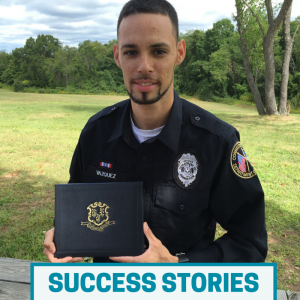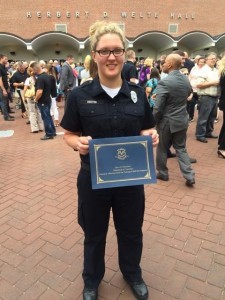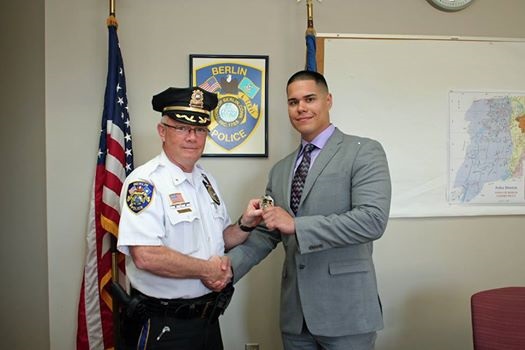MxCC Criminal Justice Program:
Are you motivated and you enjoy working with others?
Are your critical thinking and problem solving skills are an asset?
Do you want to put your hard work into a career that makes a difference in people’s lives?
Then utilize your skills and your passion in career that’s exciting, rewarding and fulfilling – a career in criminal justice!
A Career in Criminal Justice:
Career Exploration:
Center for Online Education: https://www.onlinecolleges.net/degrees/criminal-justice/
Community for Acccredited Online Schools:
Tips for Success:
The faculty in the criminal justice program want to see all of our students be successful, both in the classroom and in their criminal justice careers. As such, each of us had provided a list of our “Top Three Tips” for success.
Michael Custer:
- Read the assigned chapter prior to class. Be sure to highlight key terms and concepts you feel are important.
- Attend class. Ask questions and take notes.
- Prior to an exam, go over the highlighted terms and concepts in the assigned chapters and thoroughly review your class notes.
Nicholas Boulter:
- Particpatein class as early in the semester as possible.
- Share your thoughts and question with classmates and the instructor.
- Seek resources to assistyou in your success.
Lisa D’Angelo:
- Ask questions. Do not be afraid to ask your instructors questions, we want you to have a clear understanding of the materials.
- Listen to others. In order to get the most out of class, listen to the opinions and comments made by your classmates during class.These comments and discussions may change the way you see things.
- Pay attention to current events. A lot of what we go over and discuss in class relates to current events,
it is much easier to absorb information when you can relate them to real life.
Alaric Fox:
- Read the Assigned Material in Advance of Class: In-class discussion of course material should be your second (not your first) exposure to assignments.
- Participate in Class: Ask questions. Get involved. Do not expect the material to seep into your brain through osmosis.
- Meet Assigned Deadlines: Missing deadlines, and suffering lower grades as a result of doing so, is the equivalent of “leaving points on the table,” especially when due dates are provided at the beginning of the semester
Rebecca Rist-Brown:
- Learn how you learn: It is imperative that students become familiar with how they learn and the techniques that will help them retain information.
- Communicate: Students need to ask questions and communicate when they need clarification. An instructor cannot help a student if they are not aware that there is a problem. There will also be times in which “Life Happens.”These are external factors that may impact a student’s academic success, such a death of family member, military deployment, etc. Most instructors are willing to work with students in these situations, provided the student communicates with the instructor.
- Expectation: Read each course syllabicarefully and understand exactly what is expect in each course. Also, read the directions for each assignments carefully and create a master calendar of due dates for all of your college courses.
Criminal Justice Club
Students in the Criminal Justice Club share a common interest Criminal Justice and Law Enforcement. They achieve their objective by embracing community and participating in interesting training and lectures.
Do you like to help people? Is Law Enforcement something that you enjoy? Would you like to build your resume?
Like our page for up to date Criminal Justice Club events:

REBECCA Rist-Brown
Associate Professor & Program Coordinator, Criminal Justice & Criminology Studies
Phone: 860-343-5849
Email: rristbrown@mxcc.edu
Office Location: Snow Hall, Room 508
Schedule an Appointment
Read Biography

You’re motivated and you enjoy working with others. Your critical thinking and problem solving skills are an asset. You want to put your hard work into a career that makes a difference in people’s lives.
Now you can combine your skills and your passion in a career that’s exciting, rewarding and fulfilling.
Start right away at Middlesex Community College with an Associate Degree in Criminal Justice that will give you a competitive edge for your future employment in a wide range of jobs, including law enforcement, bailiff, coast guard, court clerk, customs agent, probation officer and many others!
Associate Degree in Criminal Justice Program
Students interested in careers in law enforcement, corrections, security and the court system should consider this program. The Associate Degree in Criminal Justice will allow students to pursue careers immediately upon completion or transfer to a four-year institution. The exciting blend of coursework examines police science, law, judicial studies and corrections.
Academic Requirements
The Associate Degree in Criminal Justice program at Middlesex Community College typically takes just two years to complete. Students are prepared for careers with valuable skills in a variety of areas, such as composition, public speaking, government, forensic science – and much more.
The program curriculum is designed to help students prepare for immediate entry into the workforce upon graduation, or for continued studies in a bachelor’s degree program after Middlesex.
Degree Requirements
Jobs You Can Get With a Criminal Justice Degree:
This degree prepares students to seek a variety of jobs within the field of criminal justice jobs. While there are many opportunities available for those without an advanced degree, competition is strong and students are encouraged to pursue further education.
Most criminal justice jobs at a federal or state level require 4-year degrees (Public Administration, Social work).
How Long Will You Have to go to School?
The Associate Degree in Criminal Justice from Middlesex Community College takes most students about two years to complete. Individual progress may affect the time it takes for degree completion.
Middlesex Community College is proud to offer an articulation agreement with the University of New Haven and Charter Oak State College. Credits from the criminal justice program at MxCC will transfer easily to the criminal justice programs at these schools. Many students who continue on to pursue a four-year degree choose to study other aspects of criminal justice, such as forensics.
Students interested in studying forensic science should discuss this option with the program coordinator (see below).
Job Availability & Growth:
Police and correction officers will always be needed. Being a challenging and well-paying field, there are often many more qualified applicants than available jobs. Education will help make a candidate more desirable to employers.
Salaries can vary greatly by the area you’re working in.
Downloadable Program Forms & Documents
Criminal Justice Degree Graduation Checklist
For more information:
Make an Appointment Associate Degree in Criminology Studies
You’re motivated and you enjoy working with others. Your critical thinking and problem-solving skills are an asset. You want to put your hard work into a career that makes a difference in people’s lives.
Now you can combine your skills and your passion in a career that’s exciting, rewarding and fulfilling.
Start right away at Middlesex Community College with an Associate Degree in Criminology Studies that will give you a competitive edge for your bachelor’s degree with transferability to Connecticut State Universities and Charter Oak State College with the exception of UCONN
Academic Requirements
The Associate Degree in Criminology Studies program at Middlesex Community College typically takes just two years to complete. Students are prepared for transfer to a four-year state university.
The program curriculum is designed to help students prepare for continued studies in a bachelor’s degree program after Middlesex.
Degree Requirements
How Long Will You Have to go to School?

The Associate Degree in Criminology Studies from Middlesex Community College takes most students about two years to complete. Individual progress may affect the time it takes for degree completion. This program is a CSCU TAP Transfer Degree that is intended for Connecticut Community College students to transfer to Connecticut State Universities and Charter Oak State College without either losing any credits or being required to take extra credits in order to complete a bachelor’s degree in that same discipline. It is highly recommended that students follow this course sequencing to ensure that they can graduate on time. This degree with not transfer to University of Connecticut (UCONN)
Downloadable Program Forms & Documents
Criminology Studies Graduation Checklist
For more information:
Make an AppointmentNo, prerequisites, no books, register in Enrollment Services.
Are you considering a career in criminal justice? Are you fascinated by criminal cases that you hear about in the news? Or would you like to learn more about police dogs and how officers address situations involving animals? This semester, MxCC is offering a series of courses on unique topics related to the criminal justice field. These classes have limited enrollment and are open to students ages 16 and up. Register early!
Cannabis New!
Grow your knowledge of cannabis by taking this introductory class. Learn how it is used medicinally in Connecticut. This course explores a variety of related topics including state laws on medical marijuana, the chemical composition of cannabis, and how it plays a role in human physiology and pharmacology. The course also examines the conflict between state, federal, and civil laws. Additional topics include employment law, ADA considerations, DUI enforcement, search and seizure, as well national and global trends towards rescheduling cannabis.
K-9s in Law
The course is designed to provide students with an overview of the use of K-9s in law enforcement. Topics include training, patrol work, special detection, community relations, search and rescue, liability, K-9 psychology, and special care required for maintaining the health and wellbeing of the canine. The course also illustrates the distinction between working dogs and pets.
Shoot, Don’t Shoot New!
The authority for police officers to use force in the line of duty is one of the most controversial aspects of police work. Everyday police officers across the nation are involved in deadly force situations and subject to criticism via social media. This course provides students with an overview of the use of force continuum and how each step is utilized. Students review landmark cases involving use of force. The course outlines the steps that take place when a deadly force situation occurs and includes the investigation, mental health support, civil liability, and criminal liability.
The City of Corrections
This class connects students to the world of the Connecticut Department of Corrections (DOC). You are introduced to the DOC through an interactive lecture and practical exposure from various correctional staff as guest speakers. The historical origin of the DOC, and how it has progressed into current times is covered with an emphasis on rehabilitation and reintegration. Students are introduced to the organizational structure of the DOC and how it operates to ensure public safety, staff wellness, and efficiency. This is an opportunity to become exposed to various correctional jobs, policies, practices, and structure including Correctional Warden, Correction Officer, K-9 unit, CERT team, Gang Intelligence Unit, Security Division, and Parole and Community Services.
You will receive a tour of one of the state’s correctional facilities, Cheshire Correctional Institution. The size limit on the tour is TBD. During this tour students will view the Young Adult Offender Program where offenders are paired with mentors in order to rehabilitate them. Students must provide their own transportation to the Cheshire Correctional Institution on the day of the tour.
Animal Control Officers
The course provides an overview of the daily operation of animal control officers as a branch of law enforcement. Topics include training, response, animal cruelty, community relations, liability, rabies, public health, zoonotic diseases, and population control. The course also illustrates the distinction in the policies and procedures of different municipalities. Students participate in an animal CPR class at Pieper Memorial Veterinary Center. Students must provide their own transportation to Pieper.
Fingerprinting 101
This hands-on workshop introduces students to the fundamental skills necessary for documenting, identifying, and developing latent fingerprints. Students use both chemical and physical visualization techniques to include fingerprint powders, magnetic powders, SPR, Cyanoacrylate fuming, iodine, crystal, and crystal violet.
Mind of a Serial Killer
Do you ever wonder what in the world a person could be thinking? Students in this course analyze and examine the mind of a serial killer. Students begin by learning the basics of the criminal law system, from what happens from the time of the arrest to the time of prosecution and conviction. Students then move into an examination of famous killers such as Charles Manson, Ted Bundy, and Jeffrey Dahmer. In conclusion, students take an in-depth look at the inner workings of the mind and what makes these killers tick.








